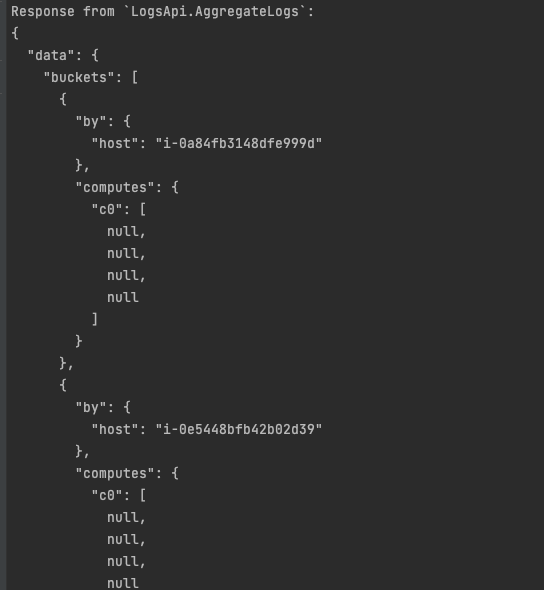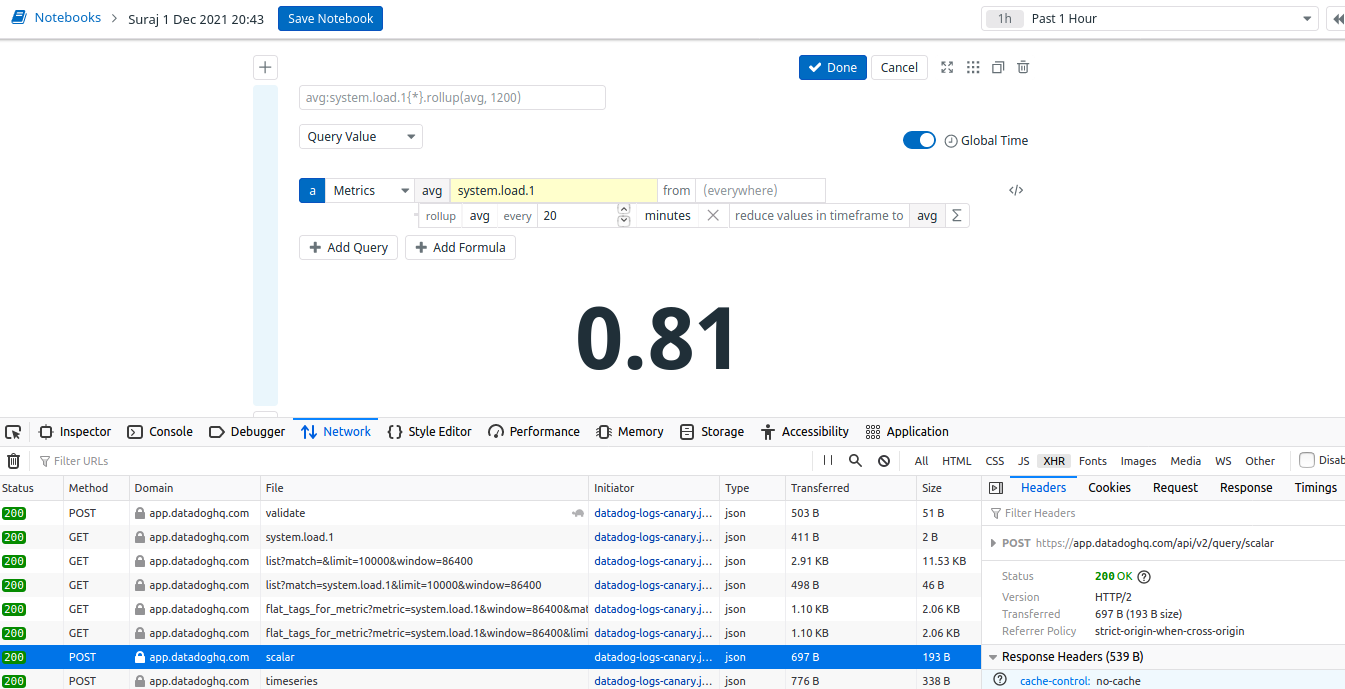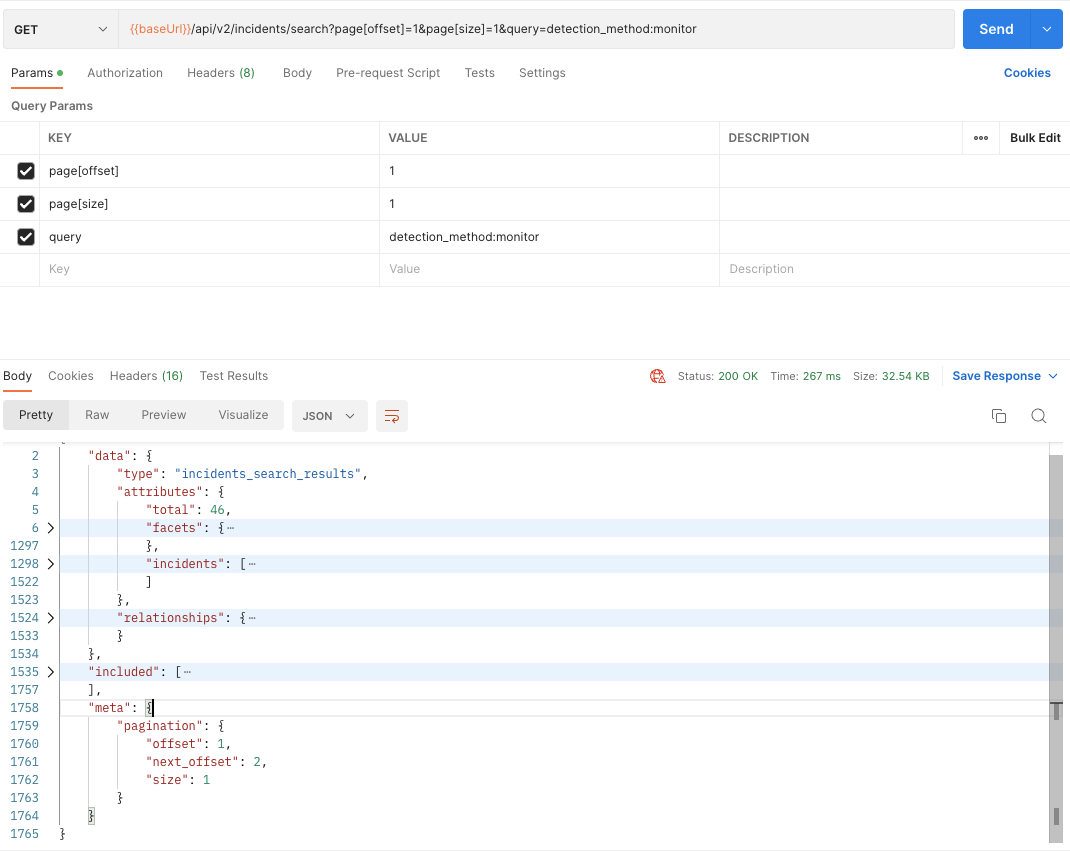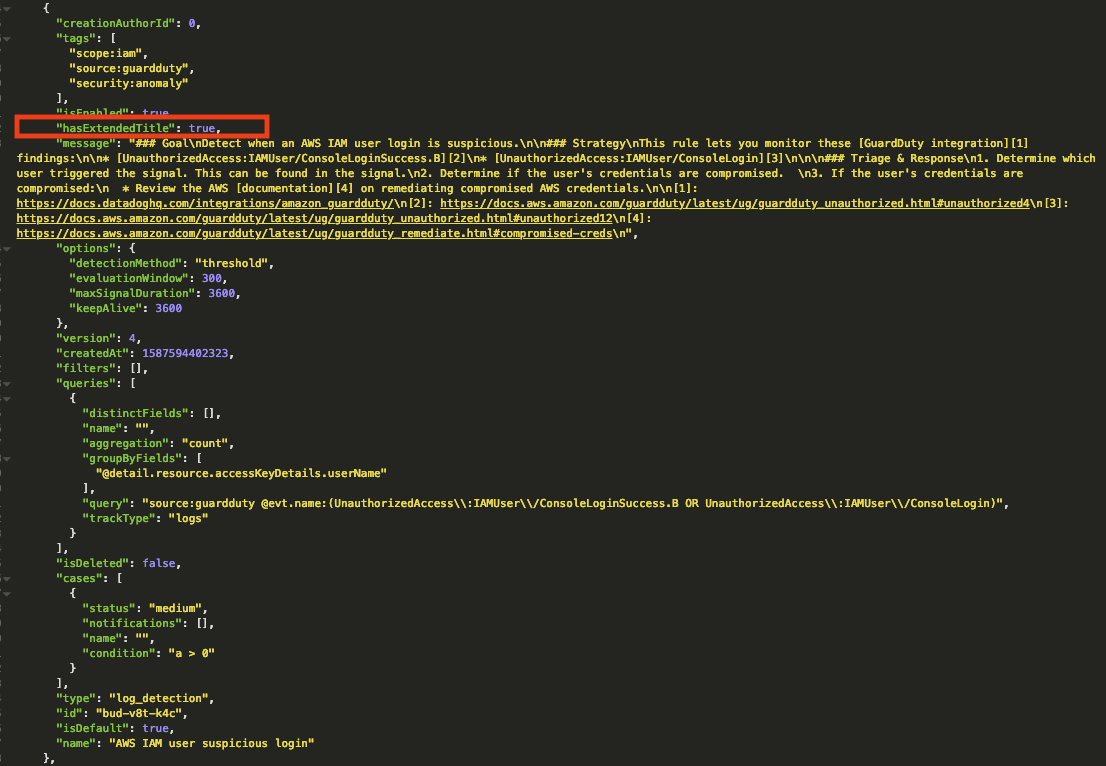This repository contains a Go API client for the Datadog API.
- Go 1.19+
This repository contains per-major-version API client packages. Right
now, Datadog has two API versions, v1, v2 and the common package.
The client library for Datadog API v1 is located in the api/datadogV1 directory. Import it with
import "github.com/DataDog/datadog-api-client-go/v2/api/datadogV1"The client library for Datadog API v2 is located in the api/datadogV2 directory. Import it with
import "github.com/DataDog/datadog-api-client-go/v2/api/datadogV2"The datadog package for Datadog API is located in the api/datadog directory. Import it with
import "github.com/DataDog/datadog-api-client-go/v2/api/datadog"Here's an example creating a user:
package main
import (
"context"
"fmt"
"os"
"github.com/DataDog/datadog-api-client-go/v2/api/datadog"
"github.com/DataDog/datadog-api-client-go/v2/api/datadogV2"
)
func main() {
ctx := context.WithValue(
context.Background(),
datadog.ContextAPIKeys,
map[string]datadog.APIKey{
"apiKeyAuth": {
Key: os.Getenv("DD_CLIENT_API_KEY"),
},
"appKeyAuth": {
Key: os.Getenv("DD_CLIENT_APP_KEY"),
},
},
)
body := *datadogV2.NewUserCreateRequest(*datadogV2.NewUserCreateData(*datadogV2.NewUserCreateAttributes("[email protected]"), datadogV2.UsersType("users")))
configuration := datadog.NewConfiguration()
apiClient := datadog.NewAPIClient(configuration)
usersApi := datadogV2.NewUsersApi(apiClient)
resp, r, err := usersApi.CreateUser(ctx, body)
if err != nil {
fmt.Fprintf(os.Stderr, "Error creating user: %v\n", err)
fmt.Fprintf(os.Stderr, "Full HTTP response: %v\n", r)
}
responseData := resp.GetData()
fmt.Fprintf(os.Stdout, "User ID: %s", responseData.GetId())
}Save it to example.go, then run go get github.com/DataDog/datadog-api-client-go/v2.
Set the DD_CLIENT_API_KEY and DD_CLIENT_APP_KEY to your Datadog
credentials, and then run go run example.go.
This client includes access to Datadog API endpoints while they are in an unstable state and may undergo breaking changes. An extra configuration step is required to enable these endpoints:
configuration.SetUnstableOperationEnabled("<APIVersion>.<OperationName>", true)where <OperationName> is the name of the method used to interact with that endpoint. For example: GetLogsIndex, or UpdateLogsIndex
When talking to a different server, like the eu instance, change the ContextServerVariables:
ctx = context.WithValue(ctx,
datadog.ContextServerVariables,
map[string]string{
"site": "datadoghq.eu",
})If you want to disable GZIP compressed responses, set the compress flag
on your configuration object:
configuration.Compress = falseIf you want to enable requests logging, set the debug flag on your configuration object:
configuration.Debug = trueIf you want to enable retry when getting status code 429 rate-limited, set EnableRetry to true
configuration.RetryConfiguration.EnableRetry = trueThe default max retry is 3, you can change it with MaxRetries
configuration.RetryConfiguration.MaxRetries = 3If you want to configure proxy, set env var HTTP_PROXY, and HTTPS_PROXY or set custom
HTTPClient with proxy configured on configuration object:
proxyUrl, _ := url.Parse("http://127.0.0.1:80")
configuration.HTTPClient = &http.Client{
Transport: &http.Transport{Proxy: http.ProxyURL(proxyUrl)}
}Several listing operations have a pagination method to help consume all the items available. For example, to retrieve all your incidents:
package main
import (
"context"
"fmt"
"os"
"github.com/DataDog/datadog-api-client-go/v2/api/datadog"
"github.com/DataDog/datadog-api-client-go/v2/api/datadogV2"
)
func main() {
ctx := datadog.NewDefaultContext(context.Background())
configuration := datadog.NewConfiguration()
configuration.SetUnstableOperationEnabled("v2.ListIncidents", true)
apiClient := datadog.NewAPIClient(configuration)
incidentsApi := datadogV2.NewIncidentsApi(apiClient)
resp, _ := incidentsApi.ListIncidentsWithPagination(ctx, *datadog.NewListIncidentsOptionalParameters())
for paginationResult := range resp {
if paginationResult.Error != nil {
fmt.Fprintf(os.Stderr, "Error when calling `IncidentsApi.ListIncidentsWithPagination`: %v\n", paginationResult.Error)
}
responseContent, _ := json.MarshalIndent(paginationResult.Item, "", " ")
fmt.Fprintf(os.Stdout, "%s\n", responseContent)
}
}By default, datadog-api-client-go uses the Go standard library enconding/json to encode and decode data. As an alternative users can opt in to use goccy/go-json by specifying the go build tag goccy_gojson.
In comparison, there was a significant decrease in cpu time with goccy/go-json with an increase in memory overhead. For further benchmark information, see goccy/go-json benchmark section.
Developer documentation for API endpoints and models is available on Github pages. Released versions are available on pkg.go.dev.
As most of the code in this repository is generated, we will only accept PRs for files that are not modified by our code-generation machinery (changes to the generated files would get overwritten). We happily accept contributions to files that are not autogenerated, such as tests and development tooling.








